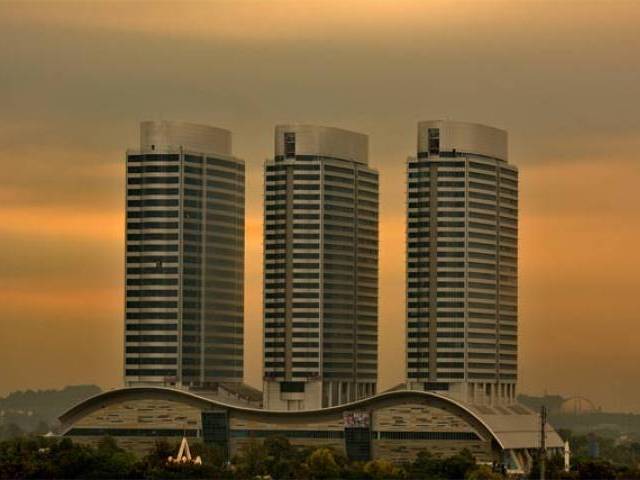
According to the SBP’s Annual Report on the State of Economy 2015-16, the ratio of property tax in the provincial income is very low despite increased activities and investments in the real estate sector.
The central bank asked provincial governments to pay attention to the falling ratio of property tax in provincial incomes and to restructure the system and laws related to the property tax to discourage the tendency of declaring lower values of the properties.
According to the SBP’s statistics, the values of properties have significantly increased but despite increased activities, the ratio of property tax in provincial taxes has decreased instead of the expected increase.
The share of property tax in total taxes has fallen from 18.7% in 2009 to 7.1% in 2016-17 in Punjab. Similarly, in Sindh, the ratio has fallen from 3.9% to 3%. In Balochistan, the ratio has dropped from 3.8% to 1.9%.
The SBP has also welcomed the decision of increasing the limit of property values for imposing the capital gains tax on purchasers as it will help discourage the trend of speculation in the real estate sector. The decision of the federal government would benefit the provincial governments by increasing their overall tax receipts, it said.
Background
Immediately after announcing the budget, the government unveiled the Finance Bill 2016 to rein in black money in the almost unregulated real estate market. This meant getting more accurate accounts of the size of real estate transactions and possibly more taxes with a hike in tax rates in the budget.
For decades, the administration had relied on obsolete DC rates to charge whatever little taxes that would come their way. However, the initial Finance Bill would allow the SBP to entrust a third party with the task of evaluating real estate’s worth for charging tax on the transaction. But due to opposition from the industry, this did not happen.
The government consequently took the authority from the SBP and instead tasked the FBR with coming up with valuation tables that would reflect property prices to be used for charging taxes (instead of the obsolete DC rates). Many have criticised the move, since it would invest too much authority in the FBR. Also, the consequent valuation tables would be heavily contested by the business community for being over-valued and by analysts for being under-valued.
Published in The Express Tribune, November 20th, 2016.
Like Business on Facebook, follow @TribuneBiz on Twitter to stay informed and join in the conversation.






1719053250-0/BeFunky-collage-(5)1719053250-0-270x192.webp)










COMMENTS (2)
Comments are moderated and generally will be posted if they are on-topic and not abusive.
For more information, please see our Comments FAQ